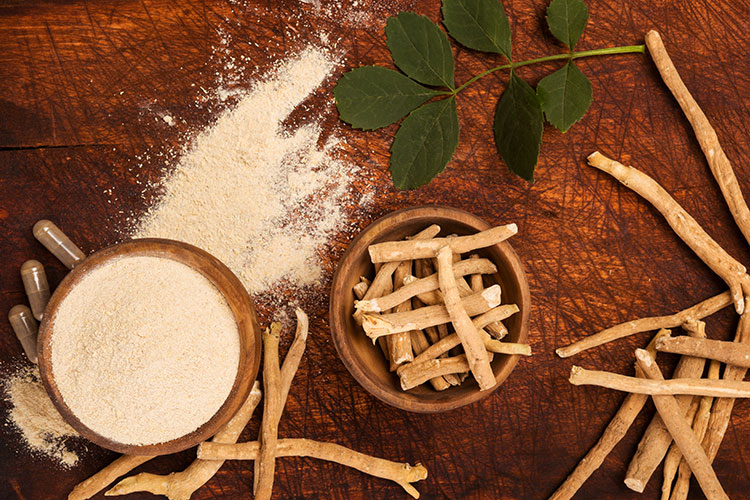
Ashwagandha is one of the herbal supplements known as adaptogens because they help your body adapt to stress. It’s been used for thousands of years in Ayurvedic medicine, and is often recommended as a supplement to reduce stress, manage anxiety, aid sleep, and several other things.
Because ashwagandha lowers cortisol levels and promotes calm, some recommend taking it with caffeine to cancel out the potential cortisol-raising and jittery effects of caffeine. But is that really a good idea?
 Reasons to Try Ashwagandha
Reasons to Try Ashwagandha
We have thousands of years of history with people using ashwagandha in traditional medicine. Several recent medical studies have also focused on ashwagandha, and these studies show good support for several benefits. Research shows the strongest evidence to support ashwagandha’s positive impact on insomnia, stress, and anxiety. There’s also some research suggesting it may improve male fertility if taken for 2-4 months.
There isn’t enough evidence yet to say if ashwagandha is effective at treating other conditions, such as asthma and diabetes, or improving cognitive and athletic performance. Research is ongoing, though, and we may yet see evidence for more benefits of ashwagandha in the future.
Theories About Caffeine with Ashwagandha
Excessive caffeine can make you feel anxious, raise your blood pressure, and cause headaches. Even if you’re staying within the FDA’s recommendation that adults consume less than 400 mg of caffeine per day, caffeine can still make you feel jittery.
There are two theories for how caffeine and ashwagandha may interact. If you look up whether it’s okay to take ashwagandha with caffeine, you’ll find several sources claiming that you should take both together. The theory is that ashwagandha will blunt the negative effects of caffeine, balance your cortisol levels, and help you feel alert longer.
On the other hand, some theorize that ashwagandha and caffeine work at cross-purposes. Combining the two may blunt the benefits of ashwagandha or create mixed signals for the nervous system. In this theory, you should take ashwagandha at night and/or separate it from stimulants such as caffeine by several hours.
There are no studies yet examining the interactions between ashwagandha and stimulants like caffeine. We simply don’t know how taking them together will affect people, though you can find anecdotal reports from people who’ve tried it. There was one study showing positive results for people who took caffeine with a blend of adaptogenic herbs, but that study did not include ashwagandha in the blend.
Bottom Line: Should You Blend Them?
If you do want to try ashwagandha and caffeine together, make sure you follow safety recommendations for both. Don’t exceed the recommended 400 mg/day for caffeine, and check with your doctor before adding caffeine to your supplement routine if you have a heart or blood pressure issue.
Studies indicate that ashwagandha is generally safe when used for up to 3 months; there are no studies yet on long-term effects. Dosage varies between 240 and 1,250 mg/day in different studies, but recommended doses are typically around 600 mg/day. Do not take ashwagandha if you are pregnant or breastfeeding. It is also not recommended for people with autoimmune disorders, thyroid disorders, or hormone-sensitive prostate cancer. It may interact with some medications, so always check with your doctor before taking ashwagandha.
If you’re thinking about taking ashwagandha to moderate the effects of caffeine, consider taking caffeine with theacrine instead. It helps you avoid a caffeine crash while making you more alert, focused, and energized. And if you want to take ashwagandha for one of its health benefits, just make sure you’re putting a few hours between it and your caffeine and/or theacrine.
